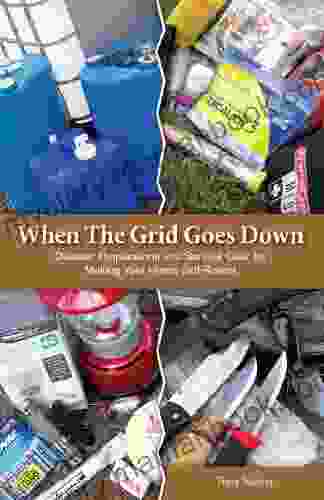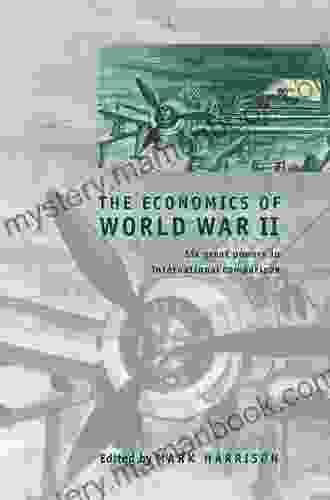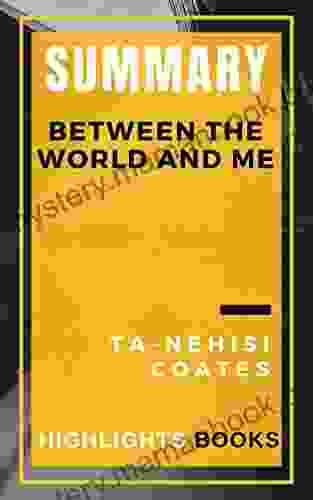The Colossal Economic Impact of World War II: A Comprehensive Analysis

4.3 out of 5
| Language | : | English |
| File size | : | 7292 KB |
| Text-to-Speech | : | Enabled |
| Screen Reader | : | Supported |
| Enhanced typesetting | : | Enabled |
| Word Wise | : | Enabled |
| Print length | : | 323 pages |
World War II, the largest and most devastating conflict in human history, had a profound impact not only on the geopolitical landscape but also on the global economy. This article aims to provide a comprehensive overview of the economic consequences of World War II, examining its immediate and long-term effects on nations across the globe.
Economic Mobilization and Production
The outbreak of World War II necessitated a massive mobilization of resources and a shift towards a war economy. In belligerent countries, governments implemented strict rationing measures to allocate scarce resources, including food, fuel, and materials. Industrial production was reoriented towards meeting the demands of the war effort, with factories repurposed to produce weapons, vehicles, and other military supplies.
This shift in production had a significant impact on the structure of economies. In the United States, for instance, the wartime economy led to a rapid expansion of the manufacturing sector, while in Britain, heavy industry experienced a surge in output. The Soviet Union, despite facing severe losses in industrial infrastructure, managed to increase its production of war materials through a centrally planned economy.
Trade and Inflation
The war disrupted international trade patterns, leading to shortages of essential goods and skyrocketing prices. The flow of raw materials and finished products was severely restricted, as belligerents blockaded each other's ports and engaged in submarine warfare. This disruption led to shortages of essential commodities, such as food and fuel, and a corresponding surge in inflation.
In some countries, inflation was exacerbated by the expansion of the money supply to finance the war effort. This led to a devaluation of currencies and a loss of purchasing power for citizens. In Germany, for instance, the printing of excessive amounts of money led to hyperinflation, wreaking havoc on the economy.
Labor and Employment
World War II had a profound impact on the labor market. In belligerent countries, large numbers of men were conscripted into the armed forces, leaving a shortage of workers in essential industries. This shortage was partly addressed by the mobilization of women into the workforce, who took on roles traditionally held by men.
The war also led to significant changes in labor relations. In many countries, governments implemented measures to prevent strikes and ensure industrial peace. In the United States, the National War Labor Board was established to mediate disputes and set wages and working conditions.
Destruction and Recovery
The war caused widespread destruction of infrastructure, property, and human capital. The bombing of cities, factories, and transportation networks left many countries with a daunting task of rebuilding in the aftermath of the conflict. The economic costs of reconstruction were enormous and varied greatly across countries.
The recovery process was also influenced by the extent of international assistance. The United States, through its Marshall Plan, provided significant economic aid to Western Europe, helping to accelerate reconstruction and spur economic growth. In contrast, the Soviet Union imposed strict control over its Eastern Bloc allies, limiting their access to Western aid and hindering their economic recovery.
Long-Term Economic Consequences
The economic consequences of World War II extended far beyond the immediate postwar period. The war accelerated certain economic trends, such as the decline of colonialism and the rise of the United States as a global economic power.
The war also played a role in shaping the international economic system. The Bretton Woods conference, held in 1944, established a new framework for global monetary and financial cooperation. The creation of the International Monetary Fund and the World Bank aimed to prevent future economic crises.
World War II had a profound economic impact, leaving lasting consequences on global economies. The war's demands led to a massive mobilization of resources and a fundamental shift towards a war economy. Disruptions to trade and inflation plagued belligerent countries, while labor shortages and industrial expansion had a significant impact on the structure of economies.
The war also caused widespread destruction, imposing a daunting task of reconstruction in the postwar period. The extent of international assistance and the subsequent recovery process varied greatly across countries, shaping their economic trajectories for decades to come. The long-term economic consequences of World War II extended far beyond the immediate postwar period, influencing the global economic system and accelerating certain economic trends.
4.3 out of 5
| Language | : | English |
| File size | : | 7292 KB |
| Text-to-Speech | : | Enabled |
| Screen Reader | : | Supported |
| Enhanced typesetting | : | Enabled |
| Word Wise | : | Enabled |
| Print length | : | 323 pages |
Do you want to contribute by writing guest posts on this blog?
Please contact us and send us a resume of previous articles that you have written.
 Top Book
Top Book Novel
Novel Fiction
Fiction Nonfiction
Nonfiction Literature
Literature Paperback
Paperback Hardcover
Hardcover E-book
E-book Audiobook
Audiobook Bestseller
Bestseller Classic
Classic Mystery
Mystery Thriller
Thriller Romance
Romance Fantasy
Fantasy Science Fiction
Science Fiction Biography
Biography Memoir
Memoir Autobiography
Autobiography Poetry
Poetry Drama
Drama Historical Fiction
Historical Fiction Self-help
Self-help Young Adult
Young Adult Childrens Books
Childrens Books Graphic Novel
Graphic Novel Anthology
Anthology Series
Series Encyclopedia
Encyclopedia Reference
Reference Guidebook
Guidebook Textbook
Textbook Workbook
Workbook Journal
Journal Diary
Diary Manuscript
Manuscript Folio
Folio Pulp Fiction
Pulp Fiction Short Stories
Short Stories Fairy Tales
Fairy Tales Fables
Fables Mythology
Mythology Philosophy
Philosophy Religion
Religion Spirituality
Spirituality Essays
Essays Critique
Critique Commentary
Commentary Glossary
Glossary Bibliography
Bibliography Index
Index Table of Contents
Table of Contents Preface
Preface Introduction
Introduction Foreword
Foreword Afterword
Afterword Appendices
Appendices Annotations
Annotations Footnotes
Footnotes Epilogue
Epilogue Prologue
Prologue Anthony Debarros
Anthony Debarros Elisabeth Murawski
Elisabeth Murawski Richard Evan Schwartz
Richard Evan Schwartz Imogen Edwards Jones
Imogen Edwards Jones Julie Garwood
Julie Garwood Ty Pearson
Ty Pearson Viyan Pradheep
Viyan Pradheep Ryk Brown
Ryk Brown Matt Haig
Matt Haig Diana Hudson
Diana Hudson Shan Ling Li
Shan Ling Li Genevieve Jack
Genevieve Jack Paul Young
Paul Young Thais Rocha
Thais Rocha Gigi Mccaffrey
Gigi Mccaffrey Gareth Worthington
Gareth Worthington Lucy A Snyder
Lucy A Snyder Mark J Kohler
Mark J Kohler Jane Jacobs
Jane Jacobs Mabel Katz
Mabel Katz
Light bulbAdvertise smarter! Our strategic ad space ensures maximum exposure. Reserve your spot today!

 Billy FosterDive into the Realm of Fast Track Buchanan Renard Mackenna 12: An In-Depth...
Billy FosterDive into the Realm of Fast Track Buchanan Renard Mackenna 12: An In-Depth... Fredrick CoxFollow ·12.2k
Fredrick CoxFollow ·12.2k Avery SimmonsFollow ·12.1k
Avery SimmonsFollow ·12.1k Colin FosterFollow ·12.2k
Colin FosterFollow ·12.2k Hamilton BellFollow ·16.1k
Hamilton BellFollow ·16.1k Sidney CoxFollow ·14.6k
Sidney CoxFollow ·14.6k Bob CooperFollow ·9k
Bob CooperFollow ·9k Hayden MitchellFollow ·16.7k
Hayden MitchellFollow ·16.7k Robert ReedFollow ·11.8k
Robert ReedFollow ·11.8k

 Luke Blair
Luke BlairWhen the Grid Goes Down: Disaster Preparations and...
In today's modern...

 Diego Blair
Diego BlairComputer Virus Guide: Everything You Need to Know to Stay...
Computer viruses...

 Dale Mitchell
Dale MitchellThe Whiskey of Our Discontent: A Literary Exploration of...
John Steinbeck's The...

 Mark Mitchell
Mark MitchellA Culinary Odyssey: Exploring the Delectable World of...
An to Southern...
4.3 out of 5
| Language | : | English |
| File size | : | 7292 KB |
| Text-to-Speech | : | Enabled |
| Screen Reader | : | Supported |
| Enhanced typesetting | : | Enabled |
| Word Wise | : | Enabled |
| Print length | : | 323 pages |













